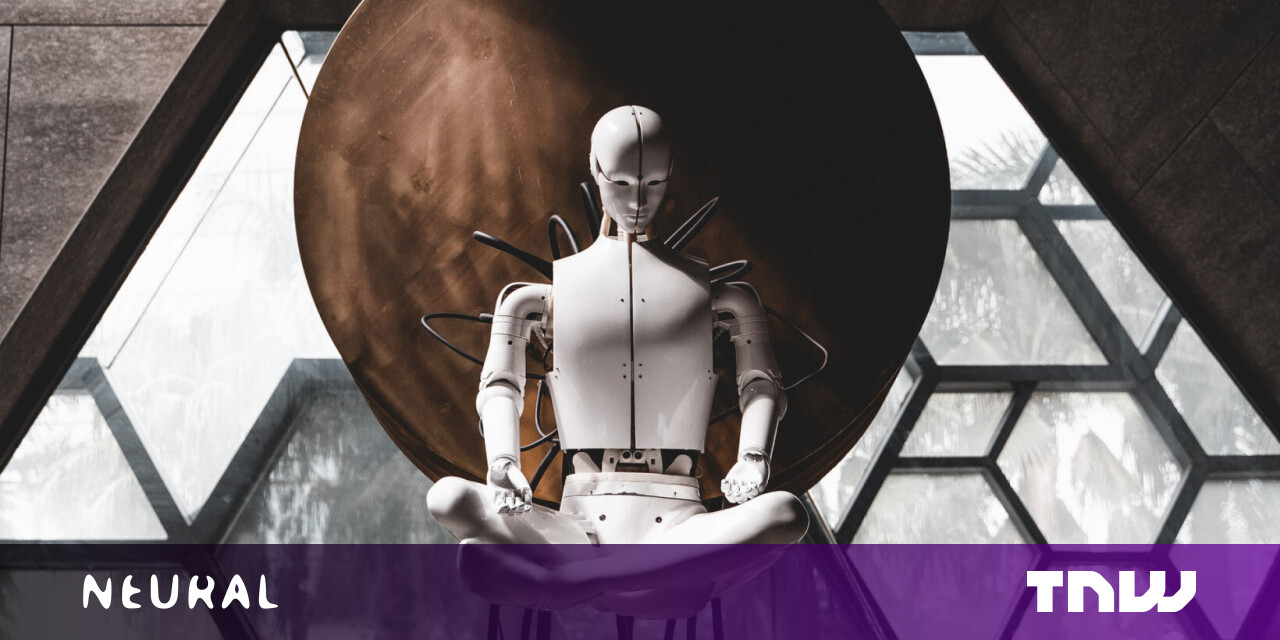
Did you know Neural is taking the stage this fall? Together with an amazing line-up of experts, we will explore the future of AI during TNW Conference 2021. Secure your ticket now!
Every new technology brings with it questions of ethics and unintended consequences. It’s right to ask these questions, but it’s also important to remember that humans are completely at the helm with how these technologies are implemented and when and where they are restrained.
Humanity is deeply ingrained in their success and failure. Looking closely, we can see technologies reflect humanity’s imperfections back to us. But I contend technologies like artificial intelligence can enhance, rather than reduce, the human experience.
Much has been made of digital echo chambers over the years, and in many cases, digital platforms have become dehumanizing. The platforms are not communities; they are launching points, and that’s largely because humans at the helm took it too far or chose not to use the technologies available. This is all part of our digital evolution.
The answer is adding humanity back into the digital world. What does this mean? In simplest terms, it’s remembering why and who the tech was envisioned for in the first place. It’s about striking balance.
Imagine a global digital community built to reflect the actual world around us, a diverse, globally attainable community. AI technology could build balanced, vibrant inclusive communities. When people see community moderation that rewards celebration and respect, then they themselves will become more conditioned to behave accordingly within the community. And when the community is a safe place, there’s room for creativity and expression, which is the essence of what it means to be human.
With AI, the digital age can complement humanity like never before. No doubt the training of AI for this application will go through some learning phases, but this application builds bridges and creates opportunities for authentic connections.
Another area is in the arts. Considering technological advancements, I think it is particularly important we continue to elevate the arts and celebrate the people contributing to them. For instance, we’re already seeing experimentation of AI in long-form writing and while I feel AI long-form writing is a great training tool for AI, I don’t believe in replacing writers. I do believe in using AI to find outstanding content or outstanding writers who might not yet have large fan bases. For example, AI can help us translate much faster, so an author’s work is available around the globe almost immediately. AI can also help us develop creative assets that are better received. AI can help us find the artists and writers we will enjoy the most, and, based on our preferences, intuit what other types of stories and games we would enjoy. AI can expand our exposure to works we find most satisfying. This is a true democratization of creative works, AI can break down the gatekeepers and expand our world, rather than develop it into an echo chamber. If digital media has taught us anything it’s that while big numbers do provide an element of social proof, they don’t necessarily drive passionate responses.
AI is already all around us, and it’s a powerful exciting tool, especially for creatives and their fans. The key for all of us is to harness AI in a way that celebrates the combination of art and technology together. This is both the promise and the responsibility of those of us at the helm. I believe we have learned some important lessons in the last two decades and I believe in the world where AI elevates humanity and I believe in us.
This article was originally published by Joey Jia on TechTalks, a publication that examines trends in technology, how they affect the way we live and do business, and the problems they solve. But we also discuss the evil side of technology, the darker implications of new tech, and what we need to look out for. You can read the original article here.